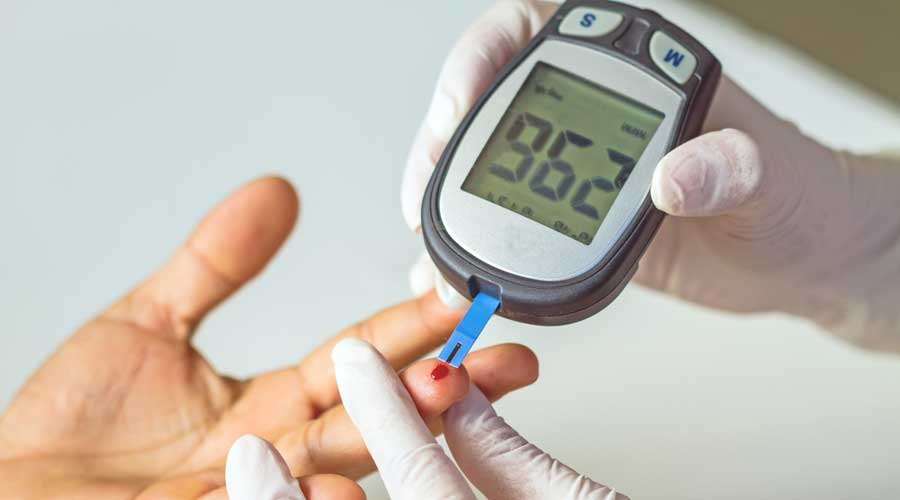An expert group on diabetes has urged doctors to stay vigilant against several “scenarios” during the coronavirus epidemic that could increase the risk of uncontrolled blood sugar in diabetes patients and others.
The Diabetes Expert Group, a panel of doctors from public and private institutions, has said that while diabetes can raise the risk of severe Covid-19, the infection itself or corticosteroid therapy could also cause blood sugar levels to rise.
The doctors have cautioned that high blood sugar might be detected in hospitalised Covid-19 patients even if they had not been previously diagnosed with diabetes.
They have said this can occur either because of weight gain during the lockdowns or because of disordered diet, poor exercise, mental stress and even the unwarranted use of the corticosteroid dexamethasone in mild Covid-19 infections.
Around 70 endocrinologists and other senior doctors from institutions across the country have signed the statement, published last week in the journal Diabetes and Metabolic Syndrome: Clinical Research and Reviews.
“Our call for action emphasises very strict control of blood sugar in patients with diabetes and in those not known to have diabetes,” said Anoop Misra, chairman of the Fortis-Centre for Diabetes, Obesity and Cholesterol, New Delhi, who led the effort.
Misra and his collaborators have also cautioned that several factors can singly or together trigger high blood pressure among hospitalised Covid-19 patients.
These include an inflammatory condition called a cytokine storm, the frequent use of dexamethasone and health staff’s failure to monitor blood sugar regularly.
The doctors have underlined that the molecular gateways the virus uses to enter human cells are also present on pancreatic cells, and at a greater density compared with lung cells.
A study from Wuhan, China, had earlier found that 17 per cent of Covid-19 patients with severe disease had developed pancreatic injury, suggesting the virus might be attacking pancreatic cells in addition to lung cells.
Any additional injury to pancreatic cells already under attack by the cytokine storm could suppress the secretion of insulin, the expert group said, urging that any blood sugar abnormalities observed should be corrected aggressively.
The expert group includes doctors from AIIMS, New Delhi, and hospitals in Ahmedabad, Bangalore, Calcutta, Jaipur and other cities.
The doctors have also expressed concern that blood sugar levels may have increased among diabetes patients and those in pre-diabetes phases who could not contact doctors during the lockdown or did not visit doctors fearing that clinics and hospitals were Covid-19 hotspots.
Lack of money during the lockdown may have prevented some patients from buying medications or insulin.
Doctors at the Postgraduate Institute of Medical Sciences in Rohtak, Haryana, had last month reported that the non-availability of insulin and poor diet control during the lockdown had worsened patients’ blood sugar levels.










